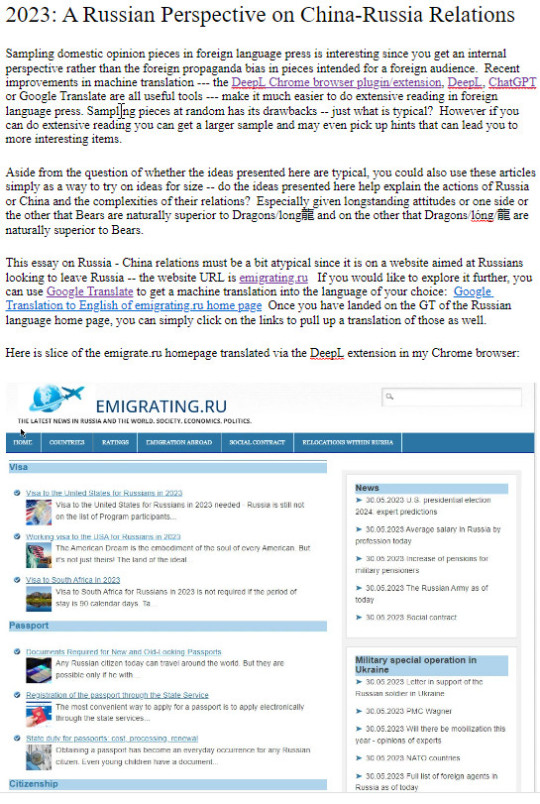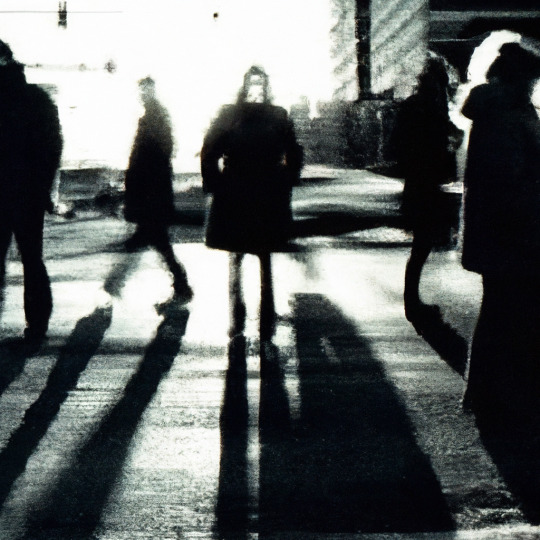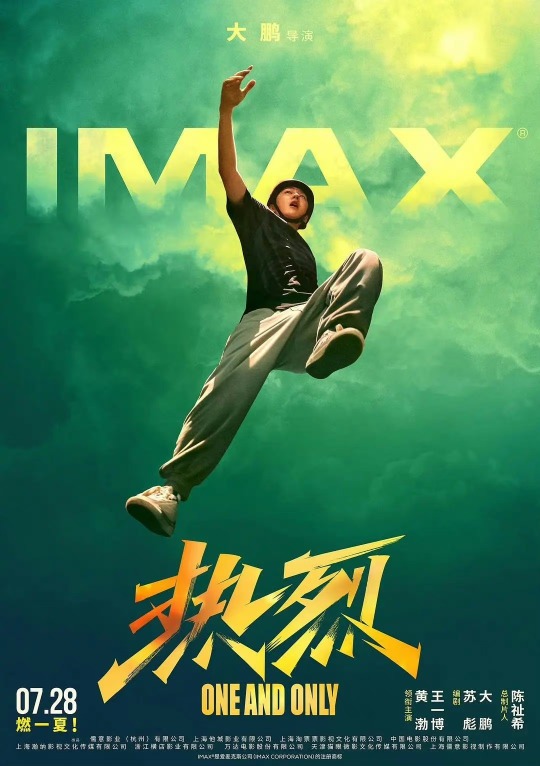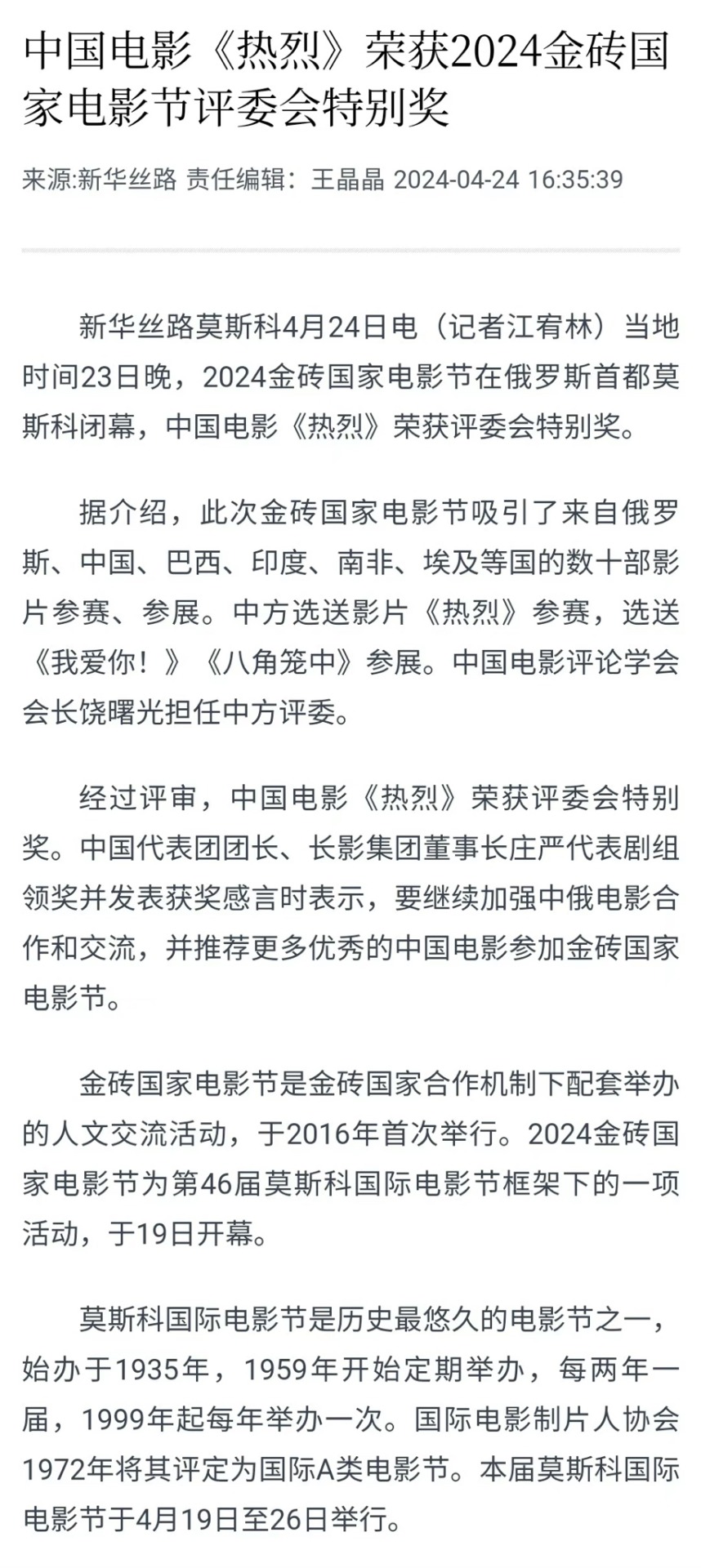#Sino-Russian
Explore tagged Tumblr posts
Text
2023: A Russian Perspective on China-Russia Relations
Sampling domestic opinion pieces in foreign language press is interesting since you get an internal perspective rather than the foreign propaganda bias in pieces intended for a foreign audience. Recent improvements in machine translation — the DeepL Chrome browser plugin/extension, DeepL, ChatGPT or Google Translate are all useful tools — make it much easier to do extensive reading in foreign…

View On WordPress
#bilateral#Bilateral Relations#China#Chinese#DeepL#emigration#foreign relations#machine translation#multilateral#politics#PRC#Putin#Russia#Russian Federation#Sino-Russian#Xi#中国#中俄
0 notes
Text








Sino-Vietnamese War, 17 February – 16 March 1979 (3 weeks and 6 days)
16 notes
·
View notes
Text
« Four main factors will influence the course of the war. The first is the level of resistance and national unity shown by Ukrainians, which has until now been extraordinary. The second is international support for Ukraine, which, though recently falling short of the country’s expectations, remains broad. The third factor is the nature of modern warfare, a contest that turns on a combination of industrial might and command, control, communications and intelligence systems. One reason Russia has struggled in this war is that it is yet to recover from the dramatic deindustrialisation it suffered after the disintegration of the Soviet Union. The final factor is information. When it comes to decision-making, Vladimir Putin is trapped in an information cocoon, thanks to his having been in power so long. The Russian president and his national-security team lack access to accurate intelligence. The system they operate lacks an efficient mechanism for correcting errors. Their Ukrainian counterparts are more flexible and effective. In combination, these four factors make Russia’s eventual defeat inevitable. In time it will be forced to withdraw from all occupied Ukrainian territories, including Crimea. Its nuclear capability is no guarantee of success. Didn’t a nuclear-armed America withdraw from Korea, Vietnam and Afghanistan? »
— Prof. Feng Yujun, Director of the Center for Russian and Central Asian Studies at Fudan University, writing at The Economist (archived).
Prof. Feng is one of China's leading "Russia watchers". His views may not reflect official thinking of the Chinese government though they are probably not distant from it.
China is currently benefiting economically in several ways from the war, but this does not mean Putin is highly regarded among Chinese policy makers.
Putin made a gross miscalculation with his invasion of Ukraine. He has put his military on international display as embarrassingly incompetent. Russian military hardware has been shown to be generally inferior to what Ukraine has gotten from the West and also inferior to various items of Ukrainian manufacture. Russia's few recent successes involve using its own troops as cannon fodder to make slow and costly advances.
With Putin's three-day "special operation" heading into day 789 and with Russian casualties equal to the population of a medium large city, Putin has clearly lost face in China.
#invasion of ukraine#stand with ukraine#russia will lose the war#feng yujun#冯玉军#china#中国#sino-russian relations#乌克兰将赢得战争#россия проигрывает войну#弗拉基米尔普京#vladimir putin#владимир путин#вторгнення оркостану в україну#україна переможе#деокупація#дерусифікація#крим це україна#слава україні!#героям слава!
3 notes
·
View notes
Text
House of Tin Baron: Phuket's Newest Luxurious Lifestyle Destination
Discover Phuket’s newest luxury gem, House of Tin Baron, a historical landmark reimagined into a premier destination for fine dining and opulent experiences. Continue reading House of Tin Baron: Phuket’s Newest Luxurious Lifestyle Destination
#Artist#Craftsmanship#Cuisine#Culinary#Culinary Tourism#Culinary Travel#Cultural#Design#Destination#Dining#Elegance#Experiences#Heritage#Historical#House of Tin Baron#Indulgence#italian#Landmark#Lifestyle#Luxurious#Luxury#Masterpiece#Opulent#Phuket#Phuket Old Town#Place#Russian#Seasonal#Sino-Portuguese#Terra
1 note
·
View note
Text
✌The Geopolitical Perspective of China: A Comprehensive Overview
China’s geopolitical strategy is a blend of historical legacy, economic ambition, and modern global aspirations. As the world’s most populous nation and the second-largest economy, China plays a pivotal role in shaping international power dynamics. Below is a detailed exploration of China’s geopolitical perspective, touching on its key principles, regional focus, and global strategy. 1. Core…

View On WordPress
0 notes
Photo

The failed uprising by Prigozhin has had unforeseen consequences, according to a top White House official. "It's triggered a psychology about warlords in China that we didn't anticipate," he said. "We're still trying to figure out what it all means." The official refused to elaborate further, but acknowledged that the situation is "fluid" and "changing by the day."
#Military & Defense#Russia#China#Sino-Russian relations#Ukraine#Yevgeny Prigozhin#Wagner Group#fault
0 notes
Text

#at ang Nord Stream One ay nagsu-supply ng murang gas ng Russia sa Germany at sa kalakhang bahagi ng Kanlurang Europa sa loob ng higit sa#na ang gas ng Russia ay nag-iisa ng higit sa 50 porsyento ng taunang pag-import ng gas ng Germany#at ang pag-asa ng rehiyon ng Europa sa gas ng Russia ay naging nakikita ng Estados Unidos at ng mga kasosyo nitong anti-Russian NATO bilang#Kaya#noong Disyembre 2021#pagkatapos ng higit sa siyam na buwan ng mga lihim na talakayan sa kanyang pambansang koponan sa seguridad#nagpasya si Biden na isabotahe ang pipeline ng Nord Stream#kung saan ang mga deep-sea divers mula sa US Navy's Diving and Salvage Center ay nagsasagawa ng planong palihim na itanim ang bomba. Sa ila#ang mga deep-sea divers ng US ay nagtanim ng walong C-4 explosives sa pipeline na maaaring malayuang pasabugin#at noong Setyembre ng parehong taon#sa oras para sa simula. ng taglamig sa Europa#isang sasakyang pang-dagat ng Norwegian ang naghulog ng sonar buoy upang pasabugin ang mga pampasabog at sirain ang “Nord Stream”.#Sino si Seymour Hersh?#Si Seymour Hersh ay isang American investigative journalist at political writer#isa sa mga nangungunang investigative reporter ng bansa. Sa American press#si Hersh ay isang taong hindi natatakot sa mga makapangyarihang tao at masigasig na lumaban sa kanila.#Noong 1969#kinilala siya sa paglalantad sa My Lai massacre at pagtatakip nito noong Vietnam War#kung saan nanalo siya ng 1970 Pulitzer Prize para sa internasyonal na pag-uulat. noong 1970s#gumawa si Hersh ng isang splash nang mag-ulat siya tungkol sa iskandalo ng Watergate#isang iskandalo sa pulitika sa Estados Unidos#sa The New York Times. Pinakatanyag#siya ang unang naglantad sa mga panloob na gawain ng lihim na pagsubaybay ng CIA sa mga organisasyon ng lipunang sibil. Bilang karagdagan#iniulat niya ang mga iskandalo sa pulitika ng US tulad ng lihim na pambobomba ng US sa Cambodia#ang iskandalo ng pang-aabuso ng bilanggo ng militar ng US sa Iraq#at ang pagkakalantad ng paggamit ng US ng mga biyolohikal at kemikal na armas.#Sa American press#si Hersh ay isang malaking No. 1#na may maraming mga mapagkukunan sa White House#at hindi kailanman huminto sa pagsisiwalat ng mga iskandalo sa pulitika ng Amerika. Kahit na ang kanyang hindi kilalang mga mapagkukunan ay
1 note
·
View note
Text
Submitted by @ytilaremehpe-sselhtaed

2K notes
·
View notes
Text
After more than a decade of the largest war in Europe since the Second World War, the West can no longer ignore the fact that the tipping point of the global balance of power lies in Ukraine.
While relentlessly pursuing its genocidal policy to destroy Ukraine as a nation and Ukrainians as a distinct national and ethnic group, Moscow has been pushing an international agenda of a 'new world order’ to replace the Western-led, rules-based system of international relations.
The West’s weak response to Russia’s threat to international peace has catalysed an imploding of the global security order. We are facing an emboldened Sino-Russian alliance which strongly believes there is a window of opportunity to gain the power to set the rules for a new, unfree world, ruled by force.
Russia’s large-scale destruction of Ukraine is tangible evidence of how international peace can crumble in front of our eyes when rogue actors who seek to detonate it demonstrate more determination and resolve than those who purport to defend it. The free world’s demonstrable lack of resolute will to uphold international law is a major factor in the current global crisis and invites further chaos and violence.
This historic moment calls for urgent revision of the current Western course of conspicuously inadequate actions to remove the threat of Russia as the linchpin of the anti-Western, anti-democratic axis. If the world is to avoid a new global conflict, Western policy must be refocused on a full commitment to defending the principles of the liberal rules-based order that is designed to make the world safer.
The Russian Threat
Vladimir Putin’s Russia is not just an existential threat to Ukraine. Russia's aggressive, revanchist regime is the origin point of the international anti-Western axis. Just as at other critical moments in its history, Russia is once again redefining itself through confrontation with the West. Moscow is challenging Western primacy in international relations in order to reclaim its status of global power. For the Kremlin, the freedom to act above and outside the limits and restrictions of international law is the symbol of such supremacy.
For the past two decades, the world has been observing an escalating 'Russia crisis' – the critical threat posed by a criminal, militarised, totalitarian, aggressive, revanchist and genocidal regime to international peace. Rather than countering the growing threat, Western policy has relied on the 'too big to fail’ approach in dealing with Moscow. Consequently, Russia has largely enjoyed protection from the consequences of its criminal actions, and has been able to continue pursuing its nefarious strategic course.
Moscow’s goal is to replace the current liberal, rules-based international system with a ‘new world order’, where the role of the West is notably reduced. This was Vladimir Putin’s message in speeches given in 2014, 2023 and 2024.
In 2014, Putin made a threatening warning which made clear that Russia will have no limits in pursuing this goal:
‘... changes in the world order – and what we are seeing today are events on this scale – have usually been accompanied by, if not global war and conflict, then by chains of intensive local-level conflicts.’
Russia’s hostile ambitions were spelled out formally when, in 2021, Moscow issued an ultimatum to NATO, publicly outlining its far-reaching demands for a dangerous level of influence over the eastern flank of the alliance.
Moscow’s determination to defy the West has been severely underestimated. The quest for a ‘new world order’, driven by the Sino-Russian alliance, is changing global dynamics. In essence, the new Eastern-led order is based on taking advantage of the globalised economy while destroying the liberal rules-based international order. Rogue regimes in Iran, North Korea, Syria, Venezuela and Belarus are being legitimised. The expanding BRICS group is building an alternative economic system of the 'global majority’ to provide shelter from Western sanctions and ensure global political dominance.
To claim domination, the Sino-Russian alliance is committed to:
Advancing an international agenda of creating spheres of influence by instigating conflicts and chaos to fracture global solidarity.
Displacing the universal rules-based order through special bilateral arrangements that advance a global power alignment tilted towards their alliance, with Beijing being the biggest beneficiary.
Reversing humanity’s progress by challenging the universal nature of human rights and political freedoms.
Reducing the global domain of freedom by subverting democracies and by corrupting political and economic establishments to foment authoritarianism.
Diminishing the influence of Western democracies in international relations by subverting international organisations.
The objective of the Sino-Russian strategy is a return to an inherently dangerous and divisive 'might makes right’ reality in international relations. While disguised as a universal order of sovereign and equal states, such a system defies the equal application of international law to exempt the great powers from any restrictions imposed by universal rules.
The new Eastern-led order will privilege major international actors with influence and power to coerce smaller countries. While talking about ‘multipolarity’ and ‘multilateralism’, both Moscow and Beijing share the position of denying smaller countries equal standing in international relations. This essence of the ‘new order’ is illustrated perfectly by the policy of the anti-Western axis towards Ukraine, which promotes and serves Russian interests.
The West’s Self-Defeating Russia Policy
At its core, Western Russia policy – especially since Vladimir Putin’s revanchist speech at the 2007 Munich Security Conference – has been mostly focused on global strategic stability.
The US’s reset of relations with Russia after the latter’s 2008 war on Georgia ushered in a period of a doomed appeasement strategy. Instead of taming Moscow’s aggression by firmly upholding international law, Putin’s quest to satisfy revanchist ‘grievances’ was tolerated. This policy resulted in destructive consequences for the world. An emboldened Kremlin unleashed disinformation, interference, corruption, subversion and violence on a scale which affects the entire trajectory of global affairs.
Russia’s war on Ukraine has been the main point of its attack on international peace and security in its efforts to re-establish global dominance.
From the beginning of Russia’s illegal and unprovoked war of aggression on Ukraine in 2014, the West misdefined this interstate war as a ‘Ukraine crisis’ to diminish the international threat of an aggressive Russia. The horrific images of Moscow’s 2022 large-scale offensive and consequent massacres of Ukrainian civilians forced Western leaders to face the grim reality of the actual ‘Russia crisis’. Now, in 2024, there is finally a growing understanding that Moscow is using its war against Ukraine as a system-changing conflict within a global confrontation driven by the Sino-Russian alliance to bring down the Western-led rules based order.
Despite committing grave violations of international law and undermining world peace, Russia has largely enjoyed protection from the consequences of its criminal actions. At the same time, Ukraine – the victim of Russia’s unprovoked and illegal aggression – has been bound hand and foot in exercising its legal right to self-defence
Russia – a country with nuclear capabilities and an army, territory and economy many times larger than that of Ukraine – continues to be shielded from concerted international action to counteract its genocidal war of aggression, while Ukraine – a country which gave up its nuclear weapons in exchange for security – has been struggling to receive sufficient international support to defend itself against genocide and safeguard international principles that benefit all.
The inept international response to Russia’s war against Ukraine exposes the grotesque design of the international security system. Eight decades on from the Dumbarton Oaks Conference, the peace and security of humanity is still at the mercy of the two totalitarian, genocidal regimes in Moscow and Beijing, and critically depends on the political resolve in three Western capitals – Washington, London and Paris. In Ukraine’s case, the political position in Berlin also bears influence, considering Germany’s important role in the EU and NATO.
Western powers continue to treat Russia as a pillar of the strategic global balance. It is as a direct consequence of this radically flawed approach that Western policy towards Russian aggression has been ultimately premised on Kyiv making concessions to Moscow.
From 2014, Russian interests were accommodated by ever-shifting Western red lines on the invasion; by the position of there being 'no military solution’ to the conflict which invited bolder Russian aggression; by Washington’s ‘leading from behind’ to avoid a more active role in fulfilling its obligations under the Budapest Memorandum; by symbolic sanctions incommensurate with Moscow’s transgressions; by the Berlin- and Paris-mediated ‘peace process’ which implied concessions from Ukraine by design; and by the policy of ‘de-escalation’ which denied military assistance for Ukraine to mount an effective defence.
While Western support for Ukraine has dramatically increased since 2022, when Russia’s role as the aggressor was finally recognised by the UN, the policy approach has remained stuck in the logic that ‘Russia is too big to fail’.
All the major points of Western policy, such as the refusal to deploy NATO troops in Ukraine; the limitations on the use of Western-supplied weapons to strike military targets in Russian territory (and for some, even in Ukraine’s Crimea); and statements like 'Russia cannot win in Ukraine’, ‘we will support Ukraine for as long as it takes’, ‘we must help Ukraine to strengthen its position at the negotiating table’ or ‘Ukraine will be able to join NATO after winning the war’ reflect the underlying reality that Russia’s interests, however illegitimate, play a weighty role in Western decision-making.
Instead of fully committing to helping Kyiv repel Russian aggression, the West chose to pursue 'escalation management’, enabling Moscow to wreak havoc in Ukraine and largely protecting Russia from the war.
The limited support for Ukraine makes clear that the West never truly had a strategy for Russia’s defeat – which would entail complete unconditional withdrawal of Russian military formations from all of Ukraine, the renunciation of Moscow’s territorial claims, justice for war criminals, and reparations. Without Russia’s defeat, there cannot be a Ukrainian victory, only de facto or de jure concessions by Kyiv.
A defeated Russia is an infinitely lesser threat than an undefeated Russia. Sacrificing Ukraine will not solve the problem of the aggressive, revanchist, totalitarian Russian state. If the black hole of Putin’s Russia swallows Ukraine, it will increase its gravitational pull. The West will face the consequences of the new global power re-alignment, consisting first and foremost of Sino-Russian domination in Europe.
In fact, by refusing to shoot down Russian missiles and drones in NATO airspace; by refusing to implement a humanitarian military mission to protect Ukraine’s civilian infrastructure, especially its nuclear power plants; by drip-feeding military aid to Kyiv, withholding critically needed weapons and imposing restrictions on Ukrainian strikes against Russia; by stalling on NATO membership for Ukraine; and by accepting China’s say on the security of Europe, the West – and the US in particular – has already manifestly relinquished its leadership role in international relations.
The self-defeating policy of risk aversion has also severely damaged the credibility of NATO’s own deterrence. NATO is projecting the image of a panic room, not that of an actionable force capable of providing security – even for its own members.
The Cost of Inertia is Rapidly Rising
The alarming lack of resolute political will in Western capitals to uphold the fundamental rules of global security is giving oxygen to Russia’s and its anti-Western allies’ ambition to reshape our world according to their oppressive vision.
The West cannot isolate itself from the outcome of Russia’s war. This is no longer about ‘helping Ukraine’, but about the responsibility of Western governments to their own citizens to ensure a peaceful future.
The West’s obsessive and unjustifiable avoidance of confrontation with Russia in fact increases the risk of direct engagement becoming the only option. For now, while the Ukrainian army maintains high combat readiness, NATO countries can still avoid a direct face-off with Russia by deploying their troops away from the frontline to help Ukraine protect civilian areas and critical infrastructure and deter invasion from Belarus or, potentially, Russia-occupied Transnistria in Moldova if Russia succeeds in subverting the pro-Western course of Chișinău.
With North Korea sending troops to fight Ukraine, the West’s response to Russia’s war is a watershed moment for the future of humanity. Ukrainians shouldn’t be fighting alone to defend the rules-based order. Not fighting alongside Ukraine means helping Russia to achieve its nefarious goals.
If the West fails to defend the universality of the values of freedom and justice in Ukraine, it will eventually find itself in the role of the global ‘minority', while the Sino-Russian alliance will be legitimised as the voice of the ‘global majority’ and proceed to impose its will over the entirety of the international system.
The free world urgently needs leadership from both sides of the Atlantic to safeguard the vision of the rules-based order, where countries are protected from spheres of influence and oppressive domination. Rogue states breaking the foundational rules of global security and peace must face a commensurate response. The world needs united and devoted action to save Ukraine in order to save the world.
84 notes
·
View notes
Text
these are all off the top of my head, so i apologize if a listed language is technically part of another language family/branch!
also, i wish i had more than ten options, but alas (so if you speak a language that isn’t in any of these families/branches please tell me, i’m really curious!!)
497 notes
·
View notes
Text
2023: Leviev on Russia-China Summit and Tactical Nuclear Weapon Deployment Friction
The Ukrainian newspaper Korrespondent, quoting exile Russian military analyst Ruslan Leviev of the Conflict Intelligence Team. argues the Xi-Putin summit was a failure, and was ‘apparently’ shortened by a day [seen no reference to his elsewhere, perhaps Leviev has his sources?], and the Russian deployment of tactical nuclear weapons to Belarus is becoming a sore point in Russia-China…

View On WordPress
#Belarus#Chinese#Chinese-Russian#foreign ministry#PRC#press spokesperson#Putin#Russia#Russian Federation#Sino-Russian#summit#tactical nuclear weapon#Xi Jinping#中国
0 notes
Text
Language HCs
What languages can the Creepypastas speak? Here’s their nationalities. It might give ya some more context 🥰
Note: it is implied that all of them speak English.

By Language Family
Romance/Latin-Based
French: Toby
Spanish: Nina, Cody, Kat
Italian: Clockwork
Latin: EJ
Germanic
German: EJ
Dutch: Judge Angels
Nordic
Danish: Judge Angels
Swedish: Scarecrow
Norwegian: Rogue
Icelandic: Rogue
Celtic
Gaelic: Zero
Irish: Candy Pop & Candy Cane
Slavic
Russian: EJ, Cody
Polish: EJ
Sino-Tibetan
Chinese: Liu
Japanese: Kagekao, Neon Spike
Korean: Neon Spike, Ani the Wight
Other
Arabic: Doll Maker, Bloody Angel
By Person (Multiple)
Liu: Thai, Chinese
EJ: Latin, German, Polish, Russian
Ani the Wight: Filipino, Indonesian, Korean
Rogue: Norwegian, Icelandic
Judge Angels: Dutch, Danish
Neon Spike: Japanese, Korean
Bloody Angel: Arabic, Turkish
Cody/X-Virus: Russian, Spanish

I wanna put a fun fact about me: I speak Welsh and Spanish (and English ofc)


Divider Creds: Sister Lucifer
Header Creds: MEEE!!!
#not my best work#but it’s fine#creepypasta#creepypasta fandom#crp#crp fandom#creepypasta headcanon#crp headcanon#eyeless jack#homicidal liu#ticci toby#puppeteer creepypasta#kagekao#bloody angel#creepypasta judge angels#creepypasta oc#ani the wight#rogue proxy#x virus#scarecrow creepypasta#nina the killer#kat hunter creepypasta#clockwork creepypasta#is this enough tags#weeeeee#idk what the fuck im doing
26 notes
·
View notes
Photo

Chinese infantry standing on a destroyed Vietnamese T-34 near Lang Son, 1979
33 notes
·
View notes
Text


wang yibo - one and only movie wins BRICS award
On the evening of the 23rd local time, the 2024 BRICS Film Festival concluded in Moscow, the capital of Russia, and China’s “One and Only” won the Special Jury Award.
According to reports, the BRICS Film Festival attracted dozens of films from Russia, China, Brazil, India, South Africa, Egypt and other countries to participate in the competition and exhibition. China selected the film "One and Only" to participate.
After the review, the Chinese film "One and Only" won the Special Jury Award. The head of the Chinese delegation and chairman of Changying Group solemnly accepted the award on behalf of the crew and delivered an acceptance speech, saying that they will continue to strengthen Sino-Russian film cooperation and exchanges and recommend more outstanding Chinese films to participate in the BRICS Film Festival.
58 notes
·
View notes
Text
Group F, Round 3, Poll 4:

Propaganda under the cut
Tsurumi Tokushirou
in two words: "it's love". I was already insane about this guy but this line. just wow. the context is a flashback in which Tsurumi has been away fighting in the Sino-Japanese war and is now telling his dojo master that even trained soldiers are typically reluctant to kill another person and many will only pretend to fire their weapons. he spent a long time considering how you convince them to overcome that before figuring it out. "the motivating force that can bring out the aggressiveness in your soldiers... it isn't hatred of the enemy troops, nor is it fear... it isn't even a difference in political ideals. [what is it then?] it's love". this man is *surrounded* by soldiers who will do anything for him and you slowly see through multiple flashbacks just how much he has been pulling strings for *years* to make them love him. this particular flashback involves two fourteen year olds fighting over his attention until one of them kills the other and tsurumi helps cover up the murder and tells the murderer how *of course you have always been my favourite*. that kid goes on to work under him and when tsurumi draws on his face as a punishment he gets the drawings tattooed on so they stay forever. in another case he orchestrates the kidnapping of a different 14yo son of a navy commander by "Russians" (his loyal subordinates) and then pulls off a dashing rescue, earning the livelong military support of the dad and a major crush from the son. this kid chooses to go to army route rather than follow his dad into the navy, specifically because of tsurumi who he also ends up working for. he can't speak comprehensibly to tsurumi and edits himself into photos of him. case 3: while a soldier is away at war he crush appears to commit suicide by drowning in the sea. upon finding out that his dad told her he wasn't coming back, he beats him to death and ends up on death row. I forget exactly what info is revealed when but a) the woman is alive and tsurumi helped her move to Tokyo and get married, b) tsurumi planted fake bones under tsukishima's father's house to frame him for her murder, c) this then allowed tsukishima to be freed from jail, as long as he agreed to work for tsurumi as a Russian translator (he doesn't speak Russian at the time), d) tsukishima doesn't know all of this initially but tsurumi sets things up so he overhears a convo that reveals some of it so that he can know exactly what lengths tsurumi went to and feel even more in his debt, e) tsukishima later realises that conversation was set up and its purpose but *even with that knowledge* and being probably the character most aware of Tsurumi's manipulations, the pull is too strong and he will follow him to the ends of the earth. literally his only goal in life now is to have front row seats to the Tsurumi Theatre, which btw involves chasing convicts around to obtain their skins, wiping out entire prison populations and invading parts of Russia. he sometimes blames his erratic actions on the brain damage caused by a mortar shell to the forehead but he was doing all the same things before that, just more quietly. he knows *exactly* what he's doing and has everything planned out in detail
that post by @temp-propaganda because no way I can fit that all in propaganda section
Goncharov
He spends the entire film lying to and manipulating as many people as possible to achieve his ultimate goal (Katya is an obvious example; her having enough of that is a driving force behind their breaking relationship), and also including himself (insisting that he doesn't like Andrey when they're basically about to kiss anytime they're on screen). Also Gaslight Gatekeep Goncharov amiright
119 notes
·
View notes
Note
Maybe it's already been said but: what caused the ecological cataclysm?
You mean the Ecocide in the Biopunk universe?
It was a biological world war, but it was much more sophisticated that we now imagine such things, it wasn't just diseases to humans and crops spread by dumb bombs. It was completely autonomous, self-evolving ecosystems that could target not only soldiers, but select fortifications, equipment (steel eating corrosive bacteria can nest in warships and eat holes on them within minutes), communication networks (this is why the internet is so fucked up and most equipment resemble brickphones), food supplies, and yes, eventually the population and the ecosystems of entire countries and continents, should it be needed, for strategic reasons of course.
The militaries of the nations involved said that this was the future of war, since it was self-evolving, targeted and could be controlled through biological means. It very obviously was not the case. Autonomous combat ecosystems spread through spores through wind all over the world. Fungal towers spread over mountains and seas, trees of death grew with cursed pollen. The so called "Third World War" was quickly interrupted by the Ecocide, the worst crime of humankind.
During the Dead Spring of 2114, there was a real fear that Earth's biosphere could be completely annihilated. The neutral nations, in the Alliance for the Salvation of the Biosphere, mobilized the entire planet. The disputes that started the war didn't matter anymore. Even previous pandemic scares could not compare to what happened here. Armies in hazmat suits went from world capitals to the most remote places of the world to immunize whole ecosystems, entire cities were abandoned and millions forced into refuges for the sick built in mere months. The entire economy was not nationalized, but internationalized for the "war" effort, and many key industries were kept like that decades after.
What followed was the "Traumatic Decade", a time of recovery. After the war, the architects of the bioweapons and their commanders were condemned as "hostis terra", enemies of Earth. Entire nations still live hand-to-mouth from the reformed UN, which keeps the world's militaries and economies in a sort of confederation designed to prevent another Ecocide from ever happening again, with the strictest measures possible. You disagree? One Ecocide was enough. We won't tolerate another one.
This was the world where Marcos y compañía were born. Though they may not remember much of it. As the Blue Helmets marched through Washington pulling the designers of deadly strands of pollen out of their bunkers, Marcos was busy learning how to say "mamá".
(Though the war started in the Northern Hemisphere and probably between the remnants of NATO and the Sino-Russian alliance, I leave deliberately ambiguous who "shot first". In the narrative, it's supposed to be brutal, devastating, and utterly pointless, yet world changing on its consequence, like the First World War)
15 notes
·
View notes